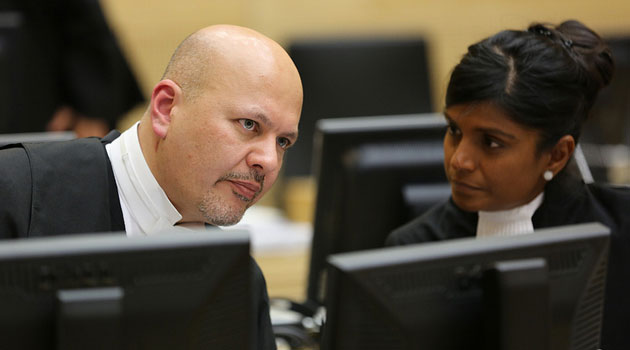
Lead counsel Karim Khan, in response to press queries, maintained that International Criminal Court (ICC) Prosecutor Fatou Bensouda had no case/FILE
Lead counsel Karim Khan, in response to press queries, maintained that International Criminal Court (ICC) Prosecutor Fatou Bensouda had no case and expressed confidence in the court’s ability to objectively subject each statement to a veracity test when weighing the case evidence.
“Regardless of the decision on Rule 68, the essential characteristics of the case remain largely the same, as far as I am concerned. This is a case that has been poorly investigated and wrongly focused from the start,” he stated.
He was also insistent that the allegations of witness tampering on which Bensouda based her application for inclusion of the statements, remained unproven and unconnected to the Deputy President.
“Repeated allegations of interference by HE William Ruto and/or the defence generally, remain unproven. Any such allegations remain vigorously contested by the defence and we continue to assert that they are absolutely false,” he said.
Contrary to Khan’s expression of continued confidence in the court’s legitimacy, legislators allied to Ruto called the court’s impartiality into question in the wake of the ruling, describing it as a political court.
READ: ICC targeted Ruto then ‘fishing for evidence’ to fix him – Jubilee
The International Criminal Court’s Trial Chamber V(A) on Wednesday admitted into evidence prior recorded statements of five ‘hostile’ prosecution witnesses in the case against Deputy President William Ruto and journalist Joshua arap Sang.
The Trial Chamber, by majority, found that the amendment to Rule 68 of the court’s rules and procedures on which ICC Prosecutor Fatou Bensouda anchored her application, could be applied in the Ruto-Sang case.
Ruto and Sang’s defence had argued that amendment to the rule allowing for prior recorded statements to be admitted into evidence shouldn’t apply in the case as its passage by the Assembly of State Parties to the Rome Statute in November of 2013 was impinged on it not being applied retrospectively.
But the chamber found that it was a matter of interpretation and that by allowing this argument, they would be hindered in carrying out of their function.
In April, Bensouda applied to have the prior recorded statements of six of her witnesses admitted into evidence after one ‘disappeared’ and five others recanted testimony on the stand.
The chamber has however declined to admit into evidence the prior recorded statement of one of the six witnesses on the grounds, “the Prosecution accepts in its request that there is little direct evidence of improper interference with this witness.”
The chamber found that it was not necessary, as the defence argued, to tie the alleged witness tampering directly to the accused as it was allegedly carried out for their benefit.









































